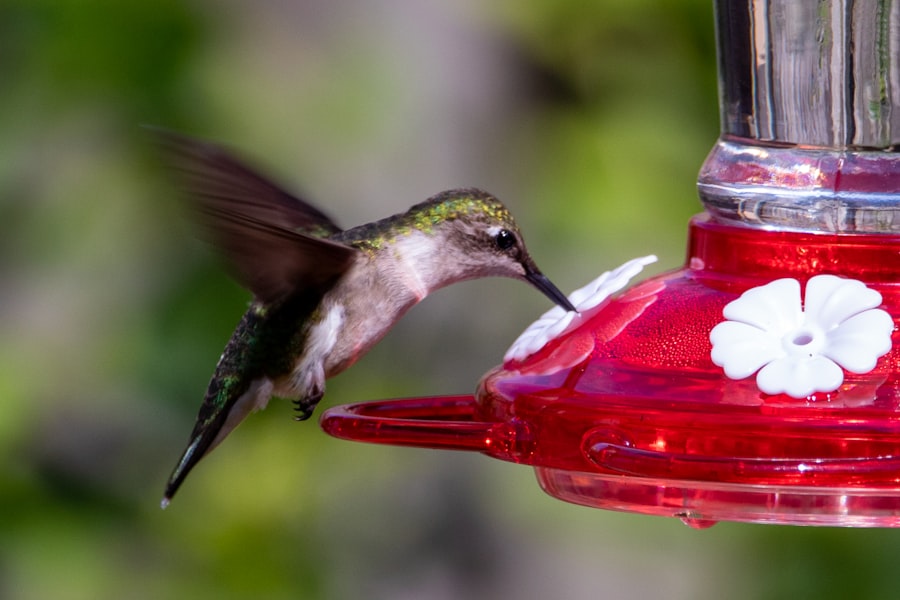When selecting chicken breeds for a backyard flock, several factors should be considered. Climate is a crucial element, as some breeds are better adapted to cold weather, while others thrive in warmer conditions. The intended purpose of the flock is also important, whether it’s for egg production, meat, or companionship.
Different breeds excel in various areas, such as egg-laying capacity, meat quality, or friendly temperament. Space availability is another key consideration. Certain breeds are more suitable for confined areas, while others require more room to roam and forage.
Noise levels can be significant, especially in urban or suburban settings with close neighbors. Some breeds are naturally quieter than others. Temperament is particularly important for families with children or other pets.
Some chicken breeds are known for their docile and friendly nature, making them more suitable for households with young family members or other animals. By carefully evaluating these factors, backyard flock owners can choose chicken breeds that are well-suited to their specific circumstances and goals.
Table of Contents
Key Takeaways
- Consider the climate, space, and purpose of raising chickens when choosing the right breed for your backyard.
- Ensure the coop and run setup provides enough space, ventilation, and protection from predators for the chickens to thrive.
- Provide a balanced diet with a mix of grains, protein, and calcium to ensure proper nutrition for the chickens.
- Regularly clean the coop, provide fresh water, and monitor for signs of illness to maintain the health and hygiene of the chickens.
- Collect eggs daily, store them properly, and handle them with care to ensure freshness and safety for consumption.
- Install predator-proof fencing, secure coop doors, and use deterrents to protect the chickens from potential threats.
- Check local regulations, obtain necessary permits, and consider neighbors when raising chickens in a community setting.
Coop and Run Setup
Coop Size and Layout
When designing your coop, it’s important to consider the size and layout. The general rule of thumb is to allow at least 2-3 square feet of space per chicken inside the coop and 8-10 square feet per chicken in the outdoor run. This will ensure that your chickens have enough room to move around comfortably and engage in natural behaviors like scratching and dust bathing.
Coop Features and Ventilation
Additionally, make sure the coop is well-ventilated and provides protection from predators. It’s also important to provide roosts and nesting boxes inside the coop for your chickens to sleep and lay eggs.
Run Safety and Access
The run should be securely fenced to keep out predators and provide access to fresh grass and insects. This will ensure that your chickens have a safe and healthy environment to roam and forage.
Feeding and Nutrition

Proper feeding and nutrition are essential for keeping your backyard chickens healthy and productive. A balanced diet for chickens should include a combination of commercial feed, kitchen scraps, and access to fresh grass and insects. Commercial feed should be formulated specifically for chickens and should contain the necessary vitamins, minerals, and protein levels for optimal health.
Additionally, providing kitchen scraps such as fruits, vegetables, and grains can supplement their diet and provide enrichment. Chickens also benefit from access to fresh grass and insects in their outdoor run, which can contribute to their overall health and well-being. It’s important to provide clean water at all times and monitor their food intake to ensure they are getting enough nutrition.
On the other hand, proper feeding and nutrition are essential for keeping your backyard chickens healthy and productive. A balanced diet for chickens should include a combination of commercial feed, kitchen scraps, and access to fresh grass and insects. Commercial feed should be formulated specifically for chickens and should contain the necessary vitamins, minerals, and protein levels for optimal health.
Additionally, providing kitchen scraps such as fruits, vegetables, and grains can supplement their diet and provide enrichment. Chickens also benefit from access to fresh grass and insects in their outdoor run, which can contribute to their overall health and well-being. It’s important to provide clean water at all times and monitor their food intake to ensure they are getting enough nutrition.
Health and Hygiene
Maintaining the health and hygiene of your backyard flock is crucial for preventing disease and ensuring their well-being. Regularly cleaning the coop and run is essential for preventing the buildup of bacteria and parasites. This includes removing soiled bedding, replacing nesting materials, and regularly disinfecting surfaces.
Additionally, providing dust baths for your chickens can help control parasites such as mites and lice. It’s also important to monitor your chickens for signs of illness or injury and seek veterinary care when necessary. Preventative measures such as vaccinations and parasite control can also help maintain the health of your flock.
On the other hand, maintaining the health and hygiene of your backyard flock is crucial for preventing disease and ensuring their well-being. Regularly cleaning the coop and run is essential for preventing the buildup of bacteria and parasites. This includes removing soiled bedding, replacing nesting materials, and regularly disinfecting surfaces.
Additionally, providing dust baths for your chickens can help control parasites such as mites and lice. It’s also important to monitor your chickens for signs of illness or injury and seek veterinary care when necessary. Preventative measures such as vaccinations and parasite control can also help maintain the health of your flock.
Egg Collection and Care
Collecting eggs from your backyard flock is an exciting part of keeping chickens. It’s important to collect eggs daily to prevent them from being damaged or eaten by predators. When collecting eggs, handle them gently to avoid cracking or breaking the shells.
Store eggs in a cool place away from direct sunlight until you are ready to use them. It’s also important to regularly clean nesting boxes to prevent the buildup of bacteria on the eggs. Additionally, inspect eggs for any abnormalities such as cracks or unusual odors, which may indicate spoilage.
On the other hand, collecting eggs from your backyard flock is an exciting part of keeping chickens. It’s important to collect eggs daily to prevent them from being damaged or eaten by predators. When collecting eggs, handle them gently to avoid cracking or breaking the shells.
Store eggs in a cool place away from direct sunlight until you are ready to use them. It’s also important to regularly clean nesting boxes to prevent the buildup of bacteria on the eggs. Additionally, inspect eggs for any abnormalities such as cracks or unusual odors, which may indicate spoilage.
Dealing with Predators

Securing the Coop
To deter predators, it’s important to secure the coop with sturdy locks and hardware cloth to prevent entry.
Deterrents and Barriers
Additionally, installing motion-activated lights or sound devices can help scare off nocturnal predators. Providing a secure run with a roof can also protect your chickens from aerial predators such as hawks.
Regular Inspections
It’s important to regularly inspect the coop and run for signs of damage or entry points that predators could exploit.
Community Regulations and Considerations
Before starting a backyard flock, it’s important to research any community regulations or restrictions that may apply in your area. Some neighborhoods or municipalities have specific rules regarding keeping chickens, such as limits on the number of birds allowed or restrictions on roosters due to noise concerns. It’s important to familiarize yourself with these regulations before getting chickens to ensure compliance with local laws.
Additionally, consider how keeping chickens may impact your neighbors and take steps to minimize any potential disturbances such as noise or odor. On the other hand, before starting a backyard flock, it’s important to research any community regulations or restrictions that may apply in your area. Some neighborhoods or municipalities have specific rules regarding keeping chickens, such as limits on the number of birds allowed or restrictions on roosters due to noise concerns.
It’s important to familiarize yourself with these regulations before getting chickens to ensure compliance with local laws. Additionally, consider how keeping chickens may impact your neighbors and take steps to minimize any potential disturbances such as noise or odor. In conclusion, keeping a backyard flock of chickens can be a rewarding experience that provides fresh eggs, natural pest control, and entertainment.
However, it’s important to carefully consider factors such as breed selection, coop setup, feeding and nutrition, health maintenance, egg collection, predator protection, and community regulations before starting a flock. By taking these considerations into account and providing proper care for your chickens, you can enjoy all the benefits of keeping backyard poultry while ensuring the well-being of your feathered friends.
If you’re interested in keeping chickens at home, you may also want to consider the benefits of renting a chicken coop. According to a recent article on PoultryWizard, renting a coop can be a convenient and cost-effective option for those who want to raise chickens but may not have the space or resources to build their own coop. The article provides helpful tips and insights for anyone considering this option. Check it out here.
FAQs
What are some tips for keeping chickens at home?
Some tips for keeping chickens at home include providing a secure coop and run, offering a balanced diet, providing fresh water, and keeping the coop clean and well-ventilated.
How much space do chickens need?
Chickens need at least 2-3 square feet of space in the coop and 8-10 square feet of space in the run per bird to ensure they have enough room to move around and exhibit natural behaviors.
What should I feed my chickens?
Chickens should be fed a balanced diet that includes a commercial feed specifically formulated for chickens, as well as access to fresh fruits, vegetables, and occasional treats like mealworms or scratch grains.
How do I keep my chickens safe from predators?
To keep chickens safe from predators, it’s important to secure the coop and run with sturdy fencing, lock the coop at night, and consider using motion-activated lights or sound deterrents to scare off potential predators.
How do I keep my chickens healthy?
To keep chickens healthy, provide regular access to fresh water, clean the coop regularly, monitor for signs of illness, and provide appropriate veterinary care when needed. Additionally, practicing good biosecurity measures can help prevent the spread of disease.
Meet Walter, the feathered-friend fanatic of Florida! Nestled in the sunshine state, Walter struts through life with his feathered companions, clucking his way to happiness. With a coop that’s fancier than a five-star hotel, he’s the Don Juan of the chicken world. When he’s not teaching his hens to do the cha-cha, you’ll find him in a heated debate with his prized rooster, Sir Clucks-a-Lot. Walter’s poultry passion is no yolk; he’s the sunny-side-up guy you never knew you needed in your flock of friends!







